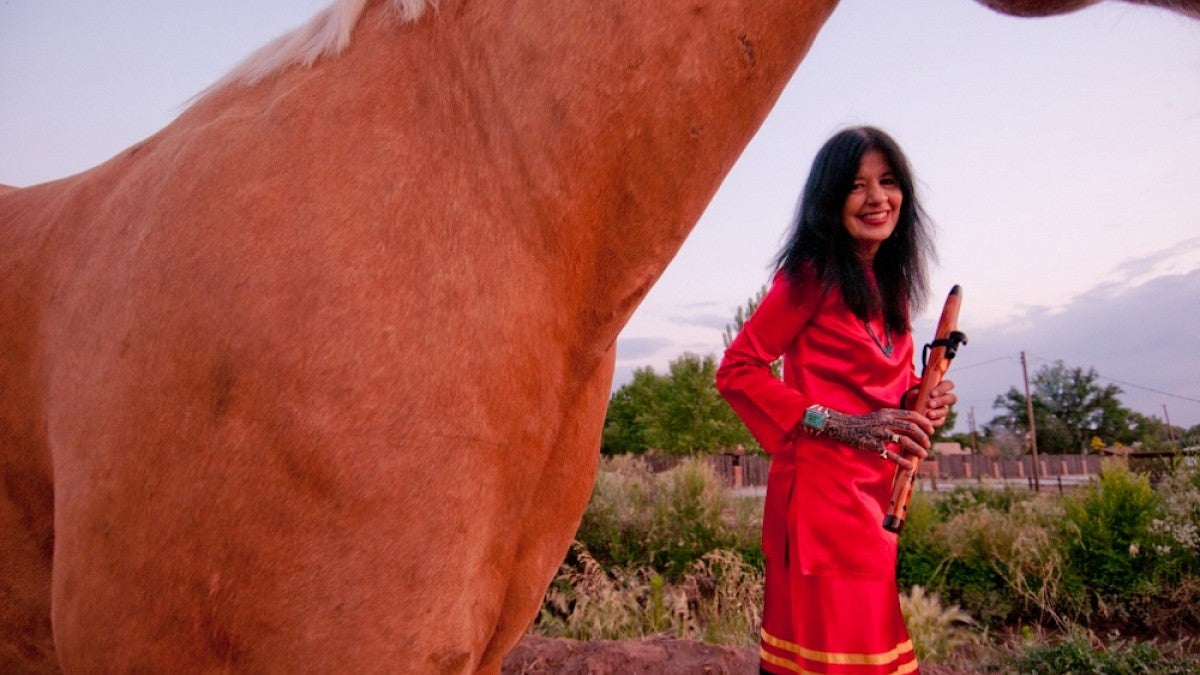International award-winning writer Joy Harjo will visit the UO in February to give a poetry reading and discuss her work.
The event takes place Friday, Feb. 2, from 3 to 4:30 p.m. in Room 156, Straub Hall. It is free and open to the public.
A member of the Muscogee (Creek) Nation, Harjo’s work is influenced by First Nation storytelling and historical traditions as well as feminist and social justice poetic traditions. She frequently references indigenous myths, values and symbolism.
Harjo's visit is sponsored by the UO Center for the Study of Women in Society, the Native American studies program and the Common Reading program, in cooperation with the Eugene Public Library. Harjo will also speak as part of the National Endowment for the Arts Big Read at the downtown Eugene Public Library on Saturday, Feb. 3, at 3 p.m.
Harjo is a professor of English and American Indian studies at the University of Illinois at Urbana-Champaign and lives in Tulsa, Oklahoma. She has published eight books of poetry, most recently “Conflict and Resolution for Holy Beings.”
Her 2012 memoir, “Crazy Brave,” won several awards, including the PEN USA Literary Award for Creative Nonfiction and the American Book Award. She also is the recipient of the 2015 Wallace Stevens Award from the Academy of American Poets and the Lifetime Achievement Award from the Native Writers Circle of the Americas.
She is both a Guggenheim and United States Arts fellow and was presented the William Carols Williams Award from the Poetry Society of America. In 2014, she was inducted into the Oklahoma Hall of Fame.
Though she will be focusing on poetry in her visit to Eugene, Harjo is also a saxophone player and performs nationally and internationally, both solo and with her band, the Arrow Dynamics. She has released five award-winning CDs of music.
“CSWS is absolutely delighted to be able to partner with Eugene Public Library, the Native American Studies Program, and the Common Reading program to host Joy Harjo,” said Michelle McKinley, director of center. “She has overcome many trials and tribulations, along with her people, to emerge as an artist with a strong, assertive voice … one that speaks in rhythmic and lyrical language to affirm the humanity of all our lives, and to acknowledge the beauty of our world alongside the sorrow.”
—By Lizzy Elkins, University Communications


